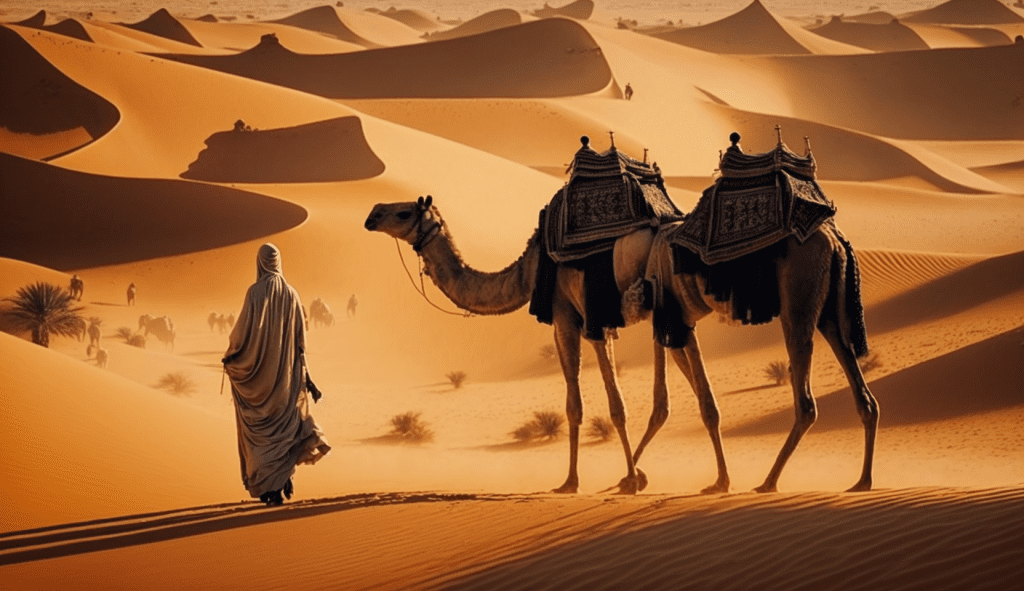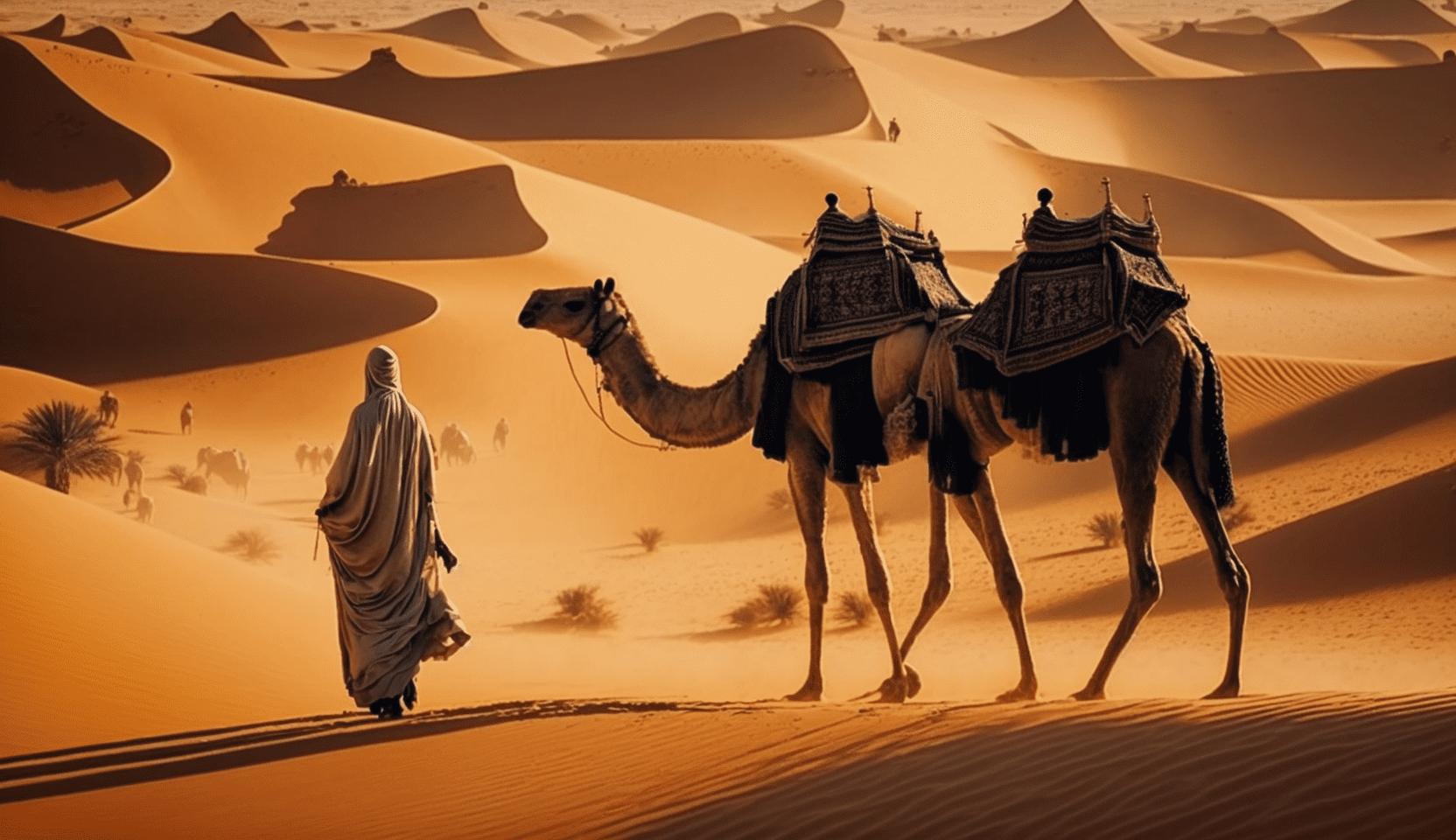

The Sahara Desert, spanning across the African continent, is not only the world’s largest hot desert but also a land rich in history, cultural diversity, and vibrant traditions. Beyond its vast expanse of sand dunes lies a tapestry of fascinating civilizations, resilient people, mouthwatering cuisine, and captivating rituals. In this article, we embark on a journey to explore the enchanting world of the Sahara, discovering its people, culture, food, traditions, and rituals.
The Sahara’s People: The Sahara is home to a diverse array of indigenous communities and ethnic groups who have adapted to the desert’s harsh environment over centuries. The Tuareg, also known as the “Blue People” due to their distinctive indigo-dyed clothing, have inhabited the Sahara for thousands of years. Renowned for their craftsmanship and nomadic lifestyle, the Tuareg have developed a rich cultural heritage that includes music, poetry, and unique social structures.
Another prominent ethnic group in the Sahara is the Berbers, who are spread across North Africa. Known for their resilience and close connection to the land, the Berbers have preserved their traditional way of life, language, and customs, making valuable contributions to the region’s cultural tapestry.
Culture and Traditions: Saharan culture is deeply rooted in ancient traditions that have withstood the test of time. Music and storytelling play a central role in Saharan societies, with captivating rhythms and melodies reflecting the desert’s mystique. Traditional instruments such as the oud, a stringed instrument, and the darbuka, a hand drum, are often used to create entrancing melodies that transport listeners to another world.
The Sahara is also renowned for its vibrant festivals and celebrations. The Festival in the Desert, held annually in Mali, brings together musicians, dancers, and artisans from different Saharan cultures, providing a platform for cultural exchange and celebration. Another notable event is the Gnaoua World Music Festival in Morocco, where visitors can immerse themselves in the mesmerizing rhythms and spiritual traditions of the Gnaoua people.
Food and Cuisine: Despite the challenging environment, the Sahara’s cuisine is a testament to the resourcefulness and creativity of its people. Traditional dishes often feature ingredients readily available in the desert, such as dates, couscous, millet, and camel meat. Tajine, a slow-cooked stew typically prepared with lamb, vegetables, and aromatic spices, is a beloved Saharan dish known for its hearty flavors.
The nomadic lifestyle of the desert inhabitants has also influenced their culinary practices. Travelers in the Sahara can experience the unique hospitality of the people through tea ceremonies, where sweet mint tea is served in ornate teapots, symbolizing friendship and warmth. The preparation and serving of tea hold great cultural significance, forming a cherished ritual in Saharan communities.
Rituals and Spiritual Practices: Spirituality and religion are deeply ingrained in Saharan societies. Traditional religious practices often involve animism, where natural elements and spirits are revered. The Sahara is also home to significant Islamic religious sites, such as the Great Mosque of Djenné in Mali and the historic city of Timbuktu, which was once a renowned center of Islamic learning.
Nomadic rituals, such as camel racing and desert storytelling, provide glimpses into the traditional practices of the Sahara’s inhabitants. These rituals serve as a means of passing down knowledge, reinforcing community bonds, and celebrating the desert’s beauty.
The Sahara is not merely a desert of sand and heat; it is a treasure trove of cultural heritage, fascinating traditions, and gastronomic delights. Its people, with their diverse ethnicities and resilient way of life, contribute to the vibrant tapestry of Saharan culture. As we delve into the rich customs, enchanting rituals, and tantalizing cuisine of the Sahara, we discover a world that captivates the imagination and leaves an indelible impression on all who venture into its vast expanse.

